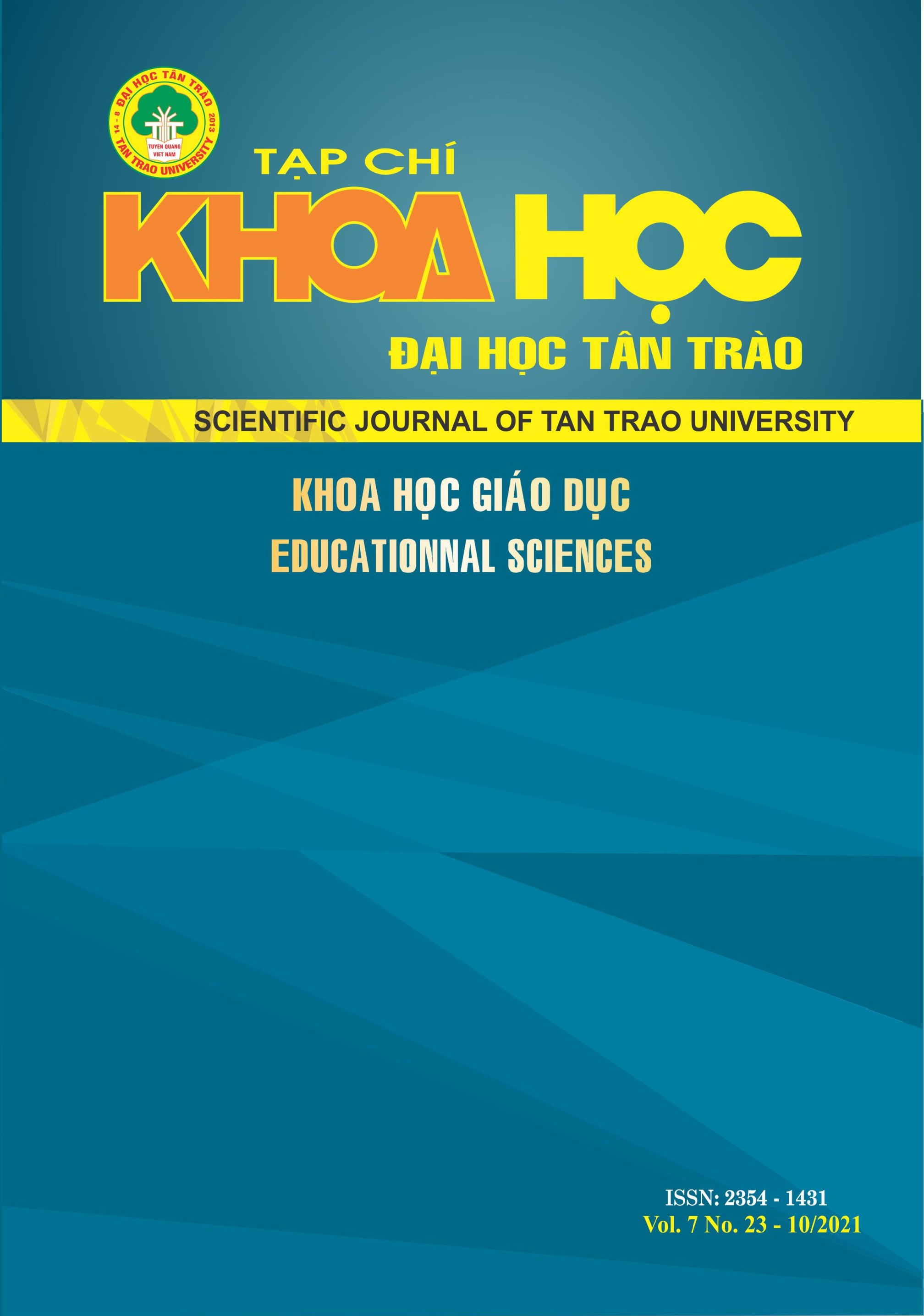DEVELOPING EXPERIENTIAL TEACHING CAPACITY FOR ELEMENTARY EDUCATION STUDENTS, TAN TRAO UNIVERSITY
DOI:
https://doi.org/10.51453/2354-1431/2021/617Abstract
This study was conducted to specify the theoretical basis and actual situation of the experiential teaching capacity of students in primary education at Tan Trao University. Based on the results of data analysis showing the actual situation of experiential teaching capacity, the article propose measures to develop experiential teaching capacity for students in primary education
Downloads
References
[1] Hoang, H. B, (2015), Competency and Competency Assessment, Journal of Science, Ho Chi Minh City University of Education. Ho Chi Minh, 6 (71), 23-28.
[2] Cuc, T.T.K & Quyen, N.P.L, (2017), Developing experiential teaching capacity for primary school teachers to meet the requirements of educational innovation, Scientific Journal of Vinh University, (46), 3, 20-28.
[3] Čižmešija, Aleksandra et al. (2018), Handbook for teaching competence enhancement higher education, Ministry of Science and Education.
[4] Douglas, A. & Miller, Brian (2006), Experiential Learning: Empowering Students in an Interactive Online Hospitality Simulation Environment, 11th Annual Hospitality and Tourism Graduate Student Education and Research Conference.
[5] Hien, N.T.T., Nga, D.T.N & Nga, P.N.Q. (2018), Renovating activities of testing and assessing pedagogical competence of students at Nghe An Pedagogical College to improve training quality, meeting the current educational innovation requirements, Education Journal, , 64-67.
[6] Phuc, N.T.N (2018), Developing experiential teaching capacity for teachers to meet the requirements of educational innovation, Education Magazine, No. 439 (Term 1 - October 2018), 22- 24; 21.
[7] Rahman., Mardia, H. (2014), Professional Competence, Pedagogical Competence and the Performance of Junior High School of Science Teachers, Journal of Education and Practice. Vol.5(9), 75-80.
Downloads
Published
How to Cite
Issue
Section
License

This work is licensed under a Creative Commons Attribution-ShareAlike 4.0 International License.
All articles published in SJTTU are licensed under a Creative Commons Attribution-ShareAlike 4.0 International (CC BY-SA) license. This means anyone is free to copy, transform, or redistribute articles for any lawful purpose in any medium, provided they give appropriate attribution to the original author(s) and SJTTU, link to the license, indicate if changes were made, and redistribute any derivative work under the same license.
Copyright on articles is retained by the respective author(s), without restrictions. A non-exclusive license is granted to SJTTU to publish the article and identify itself as its original publisher, along with the commercial right to include the article in a hardcopy issue for sale to libraries and individuals.
Although the conditions of the CC BY-SA license don't apply to authors (as the copyright holder of your article, you have no restrictions on your rights), by submitting to SJTTU, authors recognize the rights of readers, and must grant any third party the right to use their article to the extent provided by the license.


